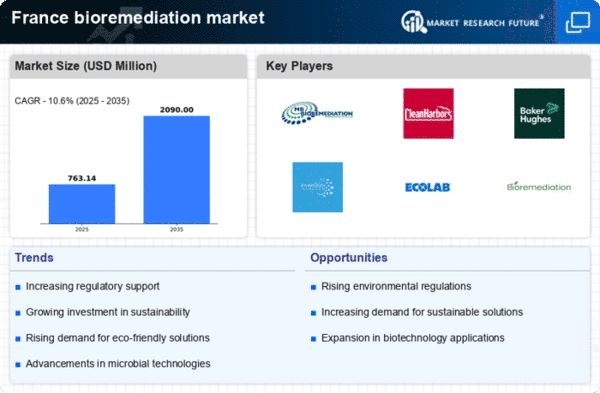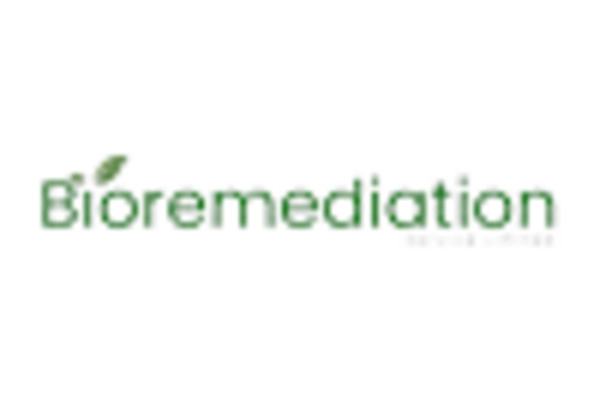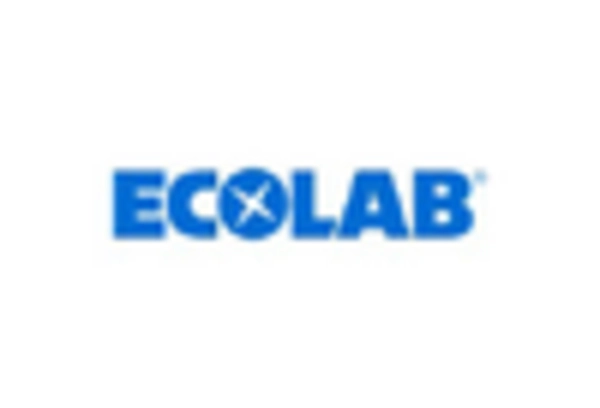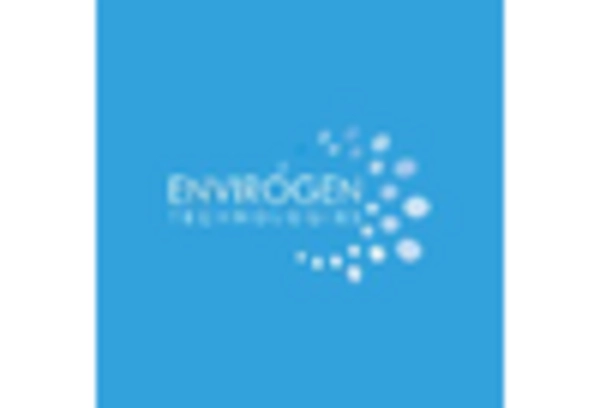Public-Private Partnerships
The emergence of public-private partnerships in France is fostering growth in the bioremediation market. Collaborative efforts between government entities and private companies are increasingly common, aimed at addressing environmental challenges through innovative bioremediation solutions. These partnerships often leverage shared resources and expertise, leading to more effective project outcomes. For instance, recent initiatives have demonstrated that such collaborations can reduce remediation costs by up to 25%, making bioremediation a more attractive option for stakeholders. As these partnerships continue to evolve, they are likely to enhance the capacity and reach of the bioremediation market, driving further advancements in technology and application.
Industrial Waste Management Needs
The growing volume of industrial waste generated in France is a significant driver for the bioremediation market. Industries such as manufacturing, agriculture, and energy production are increasingly recognizing the necessity of effective waste management strategies. With an estimated 30 million tons of hazardous waste produced annually, the demand for bioremediation solutions is expected to surge. Companies are exploring bioremediation as a cost-effective and environmentally friendly alternative to traditional waste disposal methods. This shift not only addresses waste management challenges but also aligns with corporate sustainability goals. Consequently, the bioremediation market is likely to expand as industries seek innovative solutions to manage their waste responsibly.
Investment in Sustainable Practices
The trend towards sustainability in France is driving investment in the bioremediation market. As businesses and governments prioritize eco-friendly practices, there is a notable increase in funding for bioremediation projects. In 2025, investments in sustainable technologies are projected to reach €1 billion, with a significant portion allocated to bioremediation initiatives. This financial support is crucial for the development and implementation of advanced bioremediation techniques, which can effectively address soil and water contamination. The bioremediation market stands to gain from this influx of capital, as it enables the research and deployment of innovative solutions that align with France's environmental goals.
Environmental Legislation Compliance
The increasing stringency of environmental regulations in France is a pivotal driver for the bioremediation market. As industries face mounting pressure to comply with laws aimed at reducing pollution and restoring contaminated sites, the demand for bioremediation solutions is likely to rise. The French government has implemented various directives that mandate the cleanup of hazardous waste sites, which could potentially lead to a market growth of approximately 8% annually. This regulatory landscape compels companies to adopt bioremediation technologies, thereby fostering innovation and investment in the sector. The bioremediation market in France is thus positioned to benefit from these compliance requirements, as businesses seek effective and sustainable methods to meet legal obligations.
Rising Awareness of Environmental Issues
The heightened awareness of environmental issues among the French populace is significantly influencing the bioremediation market. As citizens become more informed about the impacts of pollution and the importance of sustainable practices, there is a growing demand for effective remediation solutions. This societal shift is prompting both consumers and businesses to advocate for cleaner technologies and practices. Surveys indicate that over 70% of the population supports initiatives aimed at environmental restoration, which in turn encourages investment in bioremediation technologies. The bioremediation market is thus likely to benefit from this increased public engagement, as stakeholders seek to align their operations with the values of environmentally conscious consumers.
















